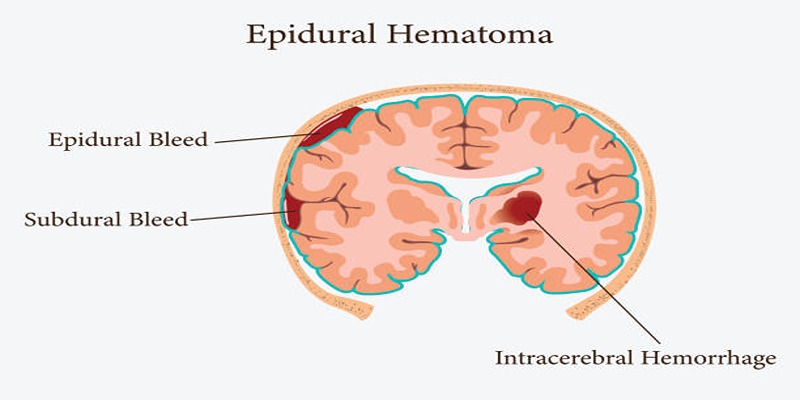Attention-Deficit/Hyperactivity Disorder (ADHD) can significantly impact a student’s ability to learn and solve mathematical problems. Difficulties with focus, working memory, and processing speed often pose challenges in comprehending math concepts, executing multi-step operations, and identifying patterns. Understanding these impacts is crucial for developing effective strategies to support learners with ADHD in mathematics.
Understanding ADHD and Its Core Characteristics:

ADHD is a disorder defined by chronic modes of negligence, hyperactivity, and recklessness. These fundamental characteristics may take different levels and forms in different individuals, but in most cases, affect academic work. Although the intelligence level remains unchanged in most cases, ADHD may affect the ability to pay attention, plan, recall, and arrange information effectively, which are key areas in mathematics.
The condition is generally classified into three types:
- Predominantly inattentive type
- Predominantly hyperactive-impulsive type
- Combined type
Each of these types can affect mathematical ability in distinct ways.
Core Cognitive Challenges in Mathematics:
1. Working Memory Limitations
Working memory is essential for holding and manipulating information in real time. In mathematics, this means remembering steps in long division, carrying numbers, or holding part of a word problem while solving another.
Children with ADHD often exhibit deficits in working memory, leading to difficulty:
- Keeping track of multiple steps in a calculation
- Recalling formulas or rules during problem-solving
- Following multi-step instructions
As a result, even if the student understands the concept, the execution may falter due to working memory overload.
2. Impaired Attention Control
Sustained attention is necessary to follow through on mathematical procedures and understand complex problems. Students with ADHD may:
- Skip steps or make careless errors
- Misread signs (+ instead of −, for example)
- Lose track of their place during multi-digit computations
These lapses are not due to a lack of understanding but to difficulty in maintaining concentration.
3. Processing Speed Challenges
Slow or inconsistent processing speed can affect how quickly and accurately students perform math tasks. ADHD does not always mean a student works slowly—it may also mean a variable pace, where periods of high focus are followed by lapses.
This inconsistency often results in:
- Incomplete assignments
- Struggles during timed tests
- A mismatch between potential and performance
Specific Mathematical Areas Affected by ADHD:
1. Basic Arithmetic
Learning to add, subtract, multiply, and divide requires memory, focus, and the ability to follow routines. ADHD may lead to:
- Difficulty memorizing math facts
- Inconsistent answers to the same problem
- A need for constant re-teaching
This can frustrate learners and reduce motivation over time.
2. Word Problems and Applications
Word problems combine language comprehension, sequencing, and logical reasoning. Students with ADHD might:
- Missed key information in the text
- Forget to answer all parts of the question
- Struggle with abstract reasoning
This makes word problems particularly daunting, even for those who perform well with numerical calculations.
3. Geometry and Spatial Reasoning
While some students with ADHD excel in visual-spatial tasks, others struggle due to challenges with visual tracking and sustained attention. This may lead to errors in:
- Interpreting graphs and diagrams
- Understanding shapes and their properties
- Measuring accurately
4. Algebra and Higher-Level Math
Advanced math involves symbols, abstract concepts, and multistep reasoning. ADHD-related difficulties in planning and sequencing can result in:
- Confusion with variable manipulation
- Skipping steps in equations
- Misapplying formulas
These issues often escalate as math becomes more conceptual.
Emotional and Behavioral Impact:
The challenges associated with ADHD in mathematics go beyond cognition. Students may experience:
- Frustration and low self-esteem
- Anxiety around math-related tasks
- Avoidance of math assignments
Repeated failures can cause learners to disengage entirely. They may perceive themselves as "bad at math," even when the issue is not intellectual ability but how their brain processes information.
Classroom and Teaching Considerations:
1. Structured Environment
Students with ADHD benefit from a highly structured learning environment. Clear, consistent routines help them know what to expect and reduce cognitive overload. Effective strategies include:
- Posting step-by-step instructions
- Using checklists for problem-solving
- Keeping the workspace clutter-free
2. Breaking Down Tasks
Complex math problems should be broken into smaller, manageable parts. Teachers and parents can support students by:
- Focusing on one concept at a time
- Using visual aids like number lines or charts
- Guiding through one step before moving to the next
3. Interactive and Hands-On Learning
Kinesthetic learning methods—using physical movement or objects—can enhance understanding and retention. For example:
- Manipulatives for counting and geometry
- Real-life math activities (measuring recipes, handling money)
- Group problem-solving games to maintain engagement
4. Positive Reinforcement
Providing immediate, specific feedback helps reinforce successful behavior and build confidence. Teachers should:
- Acknowledge effort, not just correctness
- Set small goals with visible rewards
- Celebrate improvements, even if progress is gradual
Home Support Strategies:

Parents play a critical role in supporting mathematical learning. Effective approaches include:
- Establishing a quiet, distraction-free homework area
- Setting a timer for short, focused study sessions
- Reviewing math facts daily in engaging ways (flashcards, apps)
Consistency and patience are key, as skills may take longer to develop and solidify.
When Additional Support is Needed?
If math struggles persist despite classroom interventions, further evaluation may be necessary. A comprehensive assessment by a school psychologist or learning specialist can identify whether a co-existing learning difficulty (such as a math-specific learning disorder) is present alongside ADHD.
An Individualized Education Program (IEP) or a 504 Plan may help provide accommodations such as:
- Extended time on tests: Students are given additional time to complete exams, ensuring they have a fair opportunity to demonstrate their knowledge without the pressure of strict time limits.
- Use of a calculator: Students are allowed to use a calculator during math-related tasks or tests, helping them focus on problem-solving rather than manual calculations.
- Modified homework assignments: Homework is adjusted to meet individual needs, whether through reduced workloads, alternative formats, or tailored content to support learning.
Technology as a Support Tool:
Assistive technologies can greatly benefit students with ADHD in math. Examples include:
- Math software that provides step-by-step solutions, helping students understand each part of the problem and learn how to solve it on their own.
- Voice-to-text tools designed for solving word problems, allowing students to dictate problems and receive accurate solutions without needing to type everything out.
- Graphing calculators or math-focused apps that not only plot graphs but also offer features such as equation solving, data analysis, and interactive tutorials.
Technology can provide both structure and immediate feedback, aligning with the needs of students with attention challenges.
Conclusion:
Mathematics can be particularly demanding for learners with ADHD due to the subject's reliance on memory, sequencing, and sustained focus. However, with targeted strategies, a supportive environment, and an understanding of the unique challenges posed by ADHD, students can achieve success in mathematics. Recognizing that difficulties are rooted in how information is processed, not in intelligence, is the first step toward effective support.












